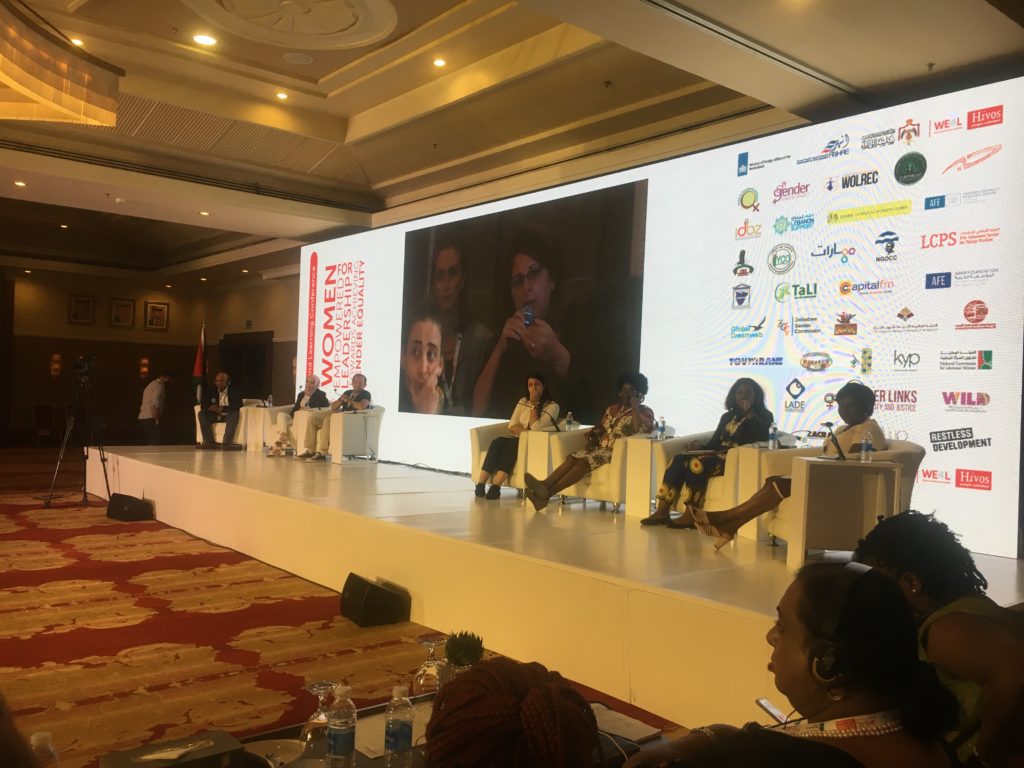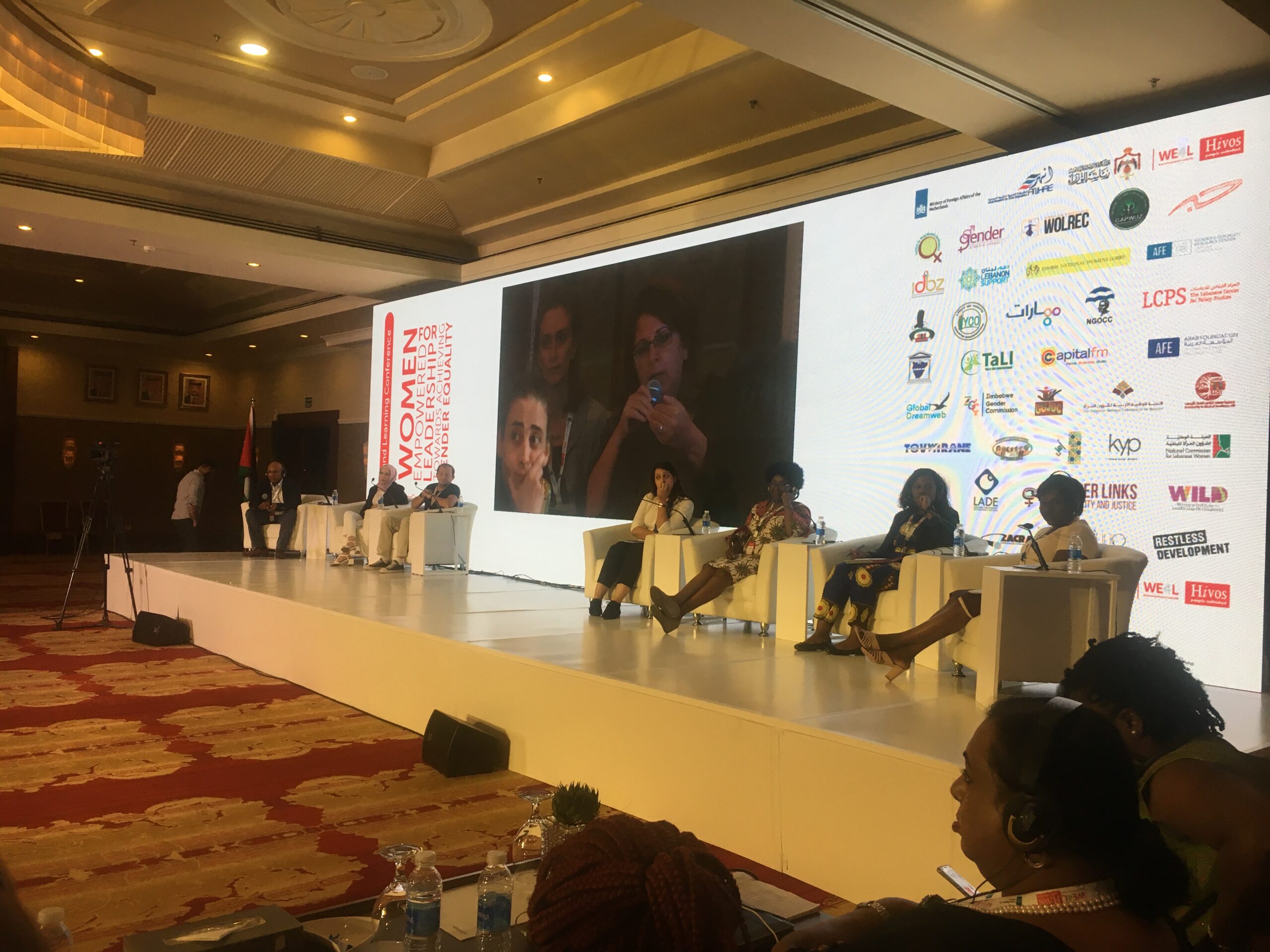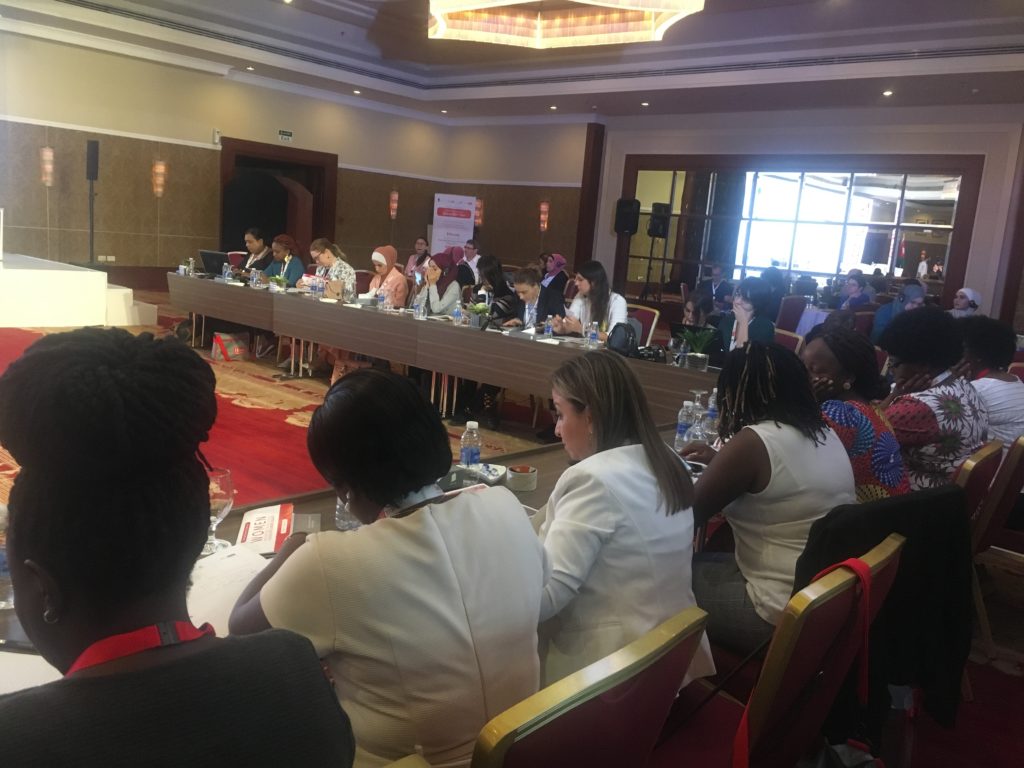id=”702″ id=”post-2120″ class=”wp-post-content-block ” itemscope itemtype=”http://schema.org/BlogPosting” itemprop=”blogPost”>

Linking and Learning 2019: Ensuring sustainability
By Shara Jazzar
During a panel session, representatives from each of the five countries Hivos operates in spoke about what has been achieved so far and what measures have been taken to ensure the sustainability of the WE4L outcomes, regardless of the availability of future funding.
Towards gender equality plans in Zambia
Juliet Chibuta, from ZNWL in Zambia, underlined that similar work to the one implemented through WE4L program has been ongoing in her country for 20 years. The focus has been on making women contribution in local councils more effective, bringing up women issues, as well as providing public speaking and media training. In order to ensure a higher number of females participating in the national political life, ZNWL is also working with nine political parties to encourage them to come out with gender equality plans that would ensure the sustainability of change through improving preconditions for women. As a result, people have started to elect women in some areas, and feminists are looking forward to elections that will take place in 2021. Juliet also highlighted that they are working on the capacity building of women, in order to “enable them to express themselves with confidence.”
Monitoring Lebanese parliamentary elections from gender perspective
Nada Saab, from Maharat in Lebanon, explained how her organization works on developing media from a gender perspective. For instance, and as a result for the lack of information related to women running for elections, Maharat published a study that focuses on female candidates between 2009 and 2018. Despite the fact that there was a tiny increase in the number of women members of parliaments between both years, what is most relevant is that the number of female candidates rose from 12 to 86. However, the shocking information is the amount of discrimination these candidates face, while being unaware of it. For instance, if they are granted an interview, “these women have to answer personal questions that are not asked to men.” In order to adjust this issue, Maharat produced informative videos that are meant to direct the media towards acceptable questions. Furthermore, the organization also broadcasted videos that enable female candidates to introduce themselves to electors, as they are often not given attention by the local media for not being males. Finally, Maharat started covering all policies related to women in order to raise awareness on them. To Nada, women cannot be empowered as long as there is discrimination.
Raising united women voices
Maggie Kathewera Banda, from WORLEC Malawi, identified the Women Manifesto as something that “would bring women together.” Furthermore, it is an important tool that will be used during elections while strengthening the stand of females in Malawi. Post-elections, this document will be relied upon to ensure that the demands are implemented by the elected candidates. As a result of the unified front created by the Manifesto, women involved decided to have a Whatsap group through which they can share all relevant information about issues happening in their country. To ensure sustainability of the initiative, connections were made with other networks, as well as the female police.
Encouraging women to write opinion pieces
On another note, Lina Ejeilat from 7ibr in Jordan felt that “women are absent when it comes to writing opinion or analysis pieces.” Furthermore, there is not enough content produced related to women in leadership positions, and they are rarely guests at TV discussions that take place during prime time. Consequently, 7ibr decided to focus on two things: attracting women and enabling them to write opinion and analysis pieces related to any topic through writing workshops, and encouraging females to be active in the public sphere while being confident when expressing their views. Lina underscored that, despite 7iber being a progressive organization that encourages women writers, articles published on its website and written by females do not exceed 40%. This clearly highlights the complexity of the problem.
The Stawisha approach in Zimbabwe.
Lucy Mungala from the Hivos team specified that the most important thing is for “a project to remain relevant.” This means to stop when there is no more need for it and remain up-to-date with the actual needs of the local communities.
As for her colleague, Tambudzai Madzimure, the importance of work-life balance for working women made her team come out with the Stawisha approach. This means that as a leader, a female still has to acknowledge that she has other responsibilities as well, such as being a mother, and therefore needs to organize accordingly and build a support system around her.





